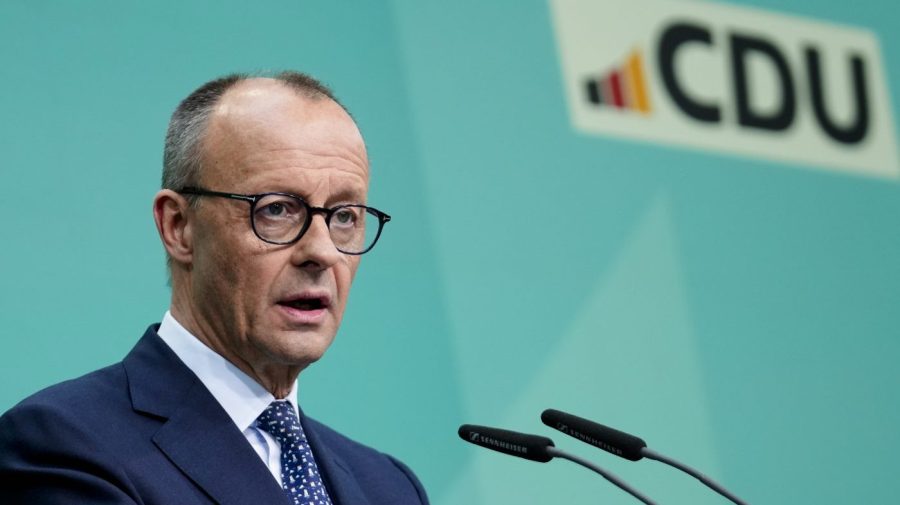
As astonishing as the electoral gains are for Germany’s far-right AfD party in Sunday’s parliamentary elections, they represent a defeat for the Republican Party in the U.S.
The AfD doubled its vote share to 20.8 percent from 10.42 percent in 2021. But despite highly visible interference from President Trump and his allies, the AfD’s result was below the average polling score of 22.5 percent that it had a year ago.
While there are costly lessons here for the GOP, the party is unlikely to budge from its controversial path of supporting ultra-right parties around the world.
At his first public discussion after the election, Friedrich Merz, the likely next chancellor whose center-right Christian Democratic Union party won 28.5 percent of the vote, noted that independence from the U.S. would be among his most important tasks. Germany, one of Europe’s most transatlanticist countries, is joining other American allies in rejecting Trump’s interference in their domestic politics.
There are similarities between the AfD and Republican electoral strategies. The AfD is the party of the “left-behinds” in Germany, most notably in East German states such as Saxony and Thuringia. While it started as an anti-European Union party, it quickly became one representing xenophobia and neo-Nazi sentiments. Trump’s GOP similarly tapped into mostly white left-behind workers’ anger and played on strong anti-immigrant sentiments.
With Trump’s 2024 election victory, the stage was set for Republican leaders to interfere in German election — something that would have caused political horror in Ronald Reagan’s GOP.
Germany’s economy had stalled. In 2024, German GDP was 0.2 percent lower than in the previous year, and forecasts for 2025 are bleak. The ruling coalition elected in 2021 fell apart in November, and a series of violent incidents involving immigrants had pushed the AfD further up in the polls.
Republican leaders built on their past engagements with the AfD. During the first Trump administration, Amb. Richard Grinnell had courted the AfD, while Steve Bannon tried to forge an alliance with the European far-right in general.
Enter Elon Musk and Vice President JD Vance in 2025. Musk provided AfD leader Alice Weidel with a platform on X for a live broadcast in which she claimed that Hitler was a communist. Later, Musk tweeted that only the AfD could save Germany. Vance, after his politically shocking speech at the Munich Security Conference, met with AfD leaders despite avoiding meeting with sitting Chancellor Olaf Scholz.
What lessons can be drawn from the Republicans’ defeat in Germany? First, although American election meddling may have inspired some younger male first-time voters to back the AfD, American support did not push the party above its previous polling numbers. With millions protesting against far-right extremism, it is safe to assume that most of the 80 percent of Germans who did not vote for the AfD were appalled by American support for the party.
Second, recent studies show that about 8 percent of Germans have a right-wing extremist worldview, while another 20 percent are in a grey area. This suggests that the AfD’s numbers could continue to grow, as shown by the election results in Germany’s eastern states, so Republican interference failed to get AfD to its potential and its internal goal of 25 percent.
Third, Republicans and Trump are in power largely because of the peculiarities of the U.S. voting system. The Republicans would find it difficult to transfer their strategy to Germany, with its system of proportional representation.
Finally, AfD’s results show that most voters turned away despite factors that allow Republicans to succeed in the U.S. Highly visible acts of violence by immigrants over the last two months and the stagnant economy meant that AfD did not need to exaggerate details like Trump and Vance did in their campaign. The AfD did so anyway, but the message failed.
The AfD’s second-place result is likely to reduce the influence of U.S. Republicans in Germany. Friedrich Merz will likely form a stable government with the Social Democrats, despite Trump allies who have called for an alliance with the AfD. And while the AfD is internally unhappy that it failed to reach its own target of 25 percent, the Left Party (Die Linke) made a surprisingly strong showing with 8.8 percent.
The far-right in Europe has openly celebrated its alliance with Trump’s Republicans. For now, the German establishment has pushed back. Such establishment pushbacks are fodder for people like Trump, who through clever combinations of lies and populism turn this to their advantage in the U.S.
The road in Europe will be much harder, but Republicans are unlikely to back away. Their overtures to Russia are part of a strategy to weaken Europe’s establishment parties.
J.P. Singh is Distinguished University Professor at George Mason University and Richard von Weizsäcker Fellow with the Robert Bosch Academy (Berlin). He is co-editor-in-chief of Global Perspectives. Maximilian Mayer is junior-professor of international relations and global politics of technology at the Center for Advanced Security, Strategic and Integration Studies, University of Bonn.












